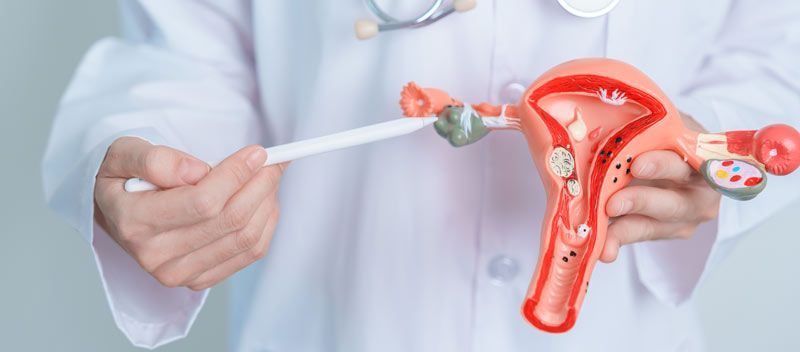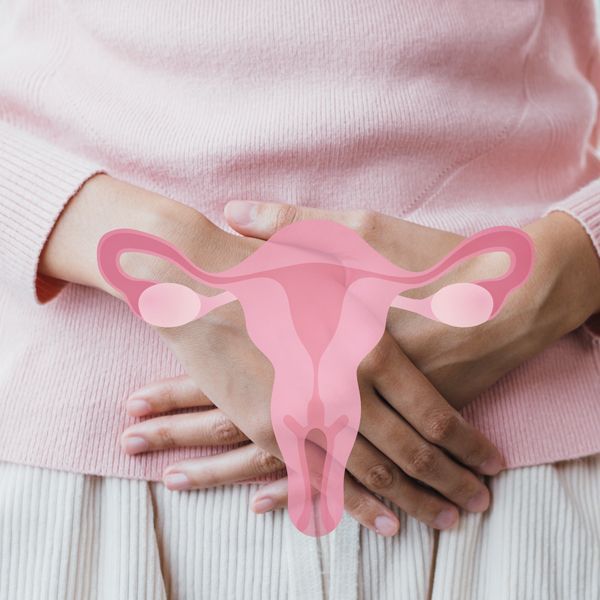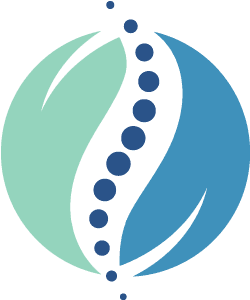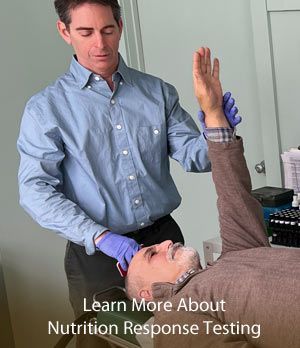PCOS Remedies - Dr. Louis Granirer Holistic Chiropractor

"Two follow-ups later, my patient reported that she was feeling significantly better. Her sleep, energy, and PMS symptoms all improved. Her menstrual cramping was about 60 percent better, and she mentioned that she didn't even have to take Advil for her cramping. I told her that she may want to get another scan before moving forward with the procedure to remove her ovarian cyst. She agreed and
reported back to me that her medical team was amazed that the large cyst on her right ovary was completely gone!
There was no sign of it whatsoever. Needless to say, her surgical procedure was canceled. "
-Dr. Louis Granirer
NYC Chiropractor
Natural Remedies for Polycystic Ovary Syndrome in
Kingston, Ulster County NY 12401
NYC Chiropractor and Leading
Nutrition Response Testing Practitioner
For a Free Consultation
What is PCOS?
PCOS stands for Polycystic Ovary Syndrome, which is a hormonal disorder that affects women of reproductive age. It is characterized by elevated androgen (male hormone) levels, menstrual irregularities, and ovarian cysts. PCOS is the most common in women in their late teens through their 40s. The name can be misleading, as not all women who are diagnosed with PCOS have cysts on their ovaries. Some women have cysts but no discernible symptoms.
PCOS Common Symptoms
It is important to note that not all women with PCOS will experience the same symptoms, and the severity of symptoms can vary. Seeking medical evaluation and diagnosis from a healthcare provider is essential for effectively addressing and managing PCOS. Common symptoms of Polycystic Ovary Syndrome (PCOS) can vary among individuals and may include:
- Irregular menstrual periods: Women with PCOS may experience irregular periods, such as prolonged or infrequent menstrual cycles, or may even stop menstruating altogether.
- Ovulation problems: PCOS can affect ovulation, leading to difficulty in conceiving or infertility.
- Elevated levels of androgens: Increased levels of male hormones, such as testosterone, can result in symptoms such as excess facial and body hair (hirsutism), acne, and male-pattern baldness.
- Polycystic ovaries: Ultrasound imaging may reveal the presence of multiple small cysts on the ovaries, although not all women with PCOS will have this feature.
- Weight gain or difficulty losing weight: Many women with PCOS struggle with weight management, particularly central or abdominal obesity.
- Insulin resistance: PCOS is often associated with insulin resistance, which can lead to prediabetes or type 2 diabetes.
- Skin problems: In addition to acne, some women with PCOS may experience skin tags, darkening of the skin, particularly in areas such as the neck creases, groin, and under the breasts (acanthosis nigricans).
- Mood changes: PCOS may be linked to symptoms of anxiety, depression, and mood swings in some individuals.
- Strong PMS symptoms (including cramping)
- Hair growth: on the chin, upper lip, sideburns or back
- Blood sugar handling issues
- Thinning hair
- Ovarian cysts and enlarged ovaries
- Fatigue with Sleep disturbances
- Thyroid imbalance
- Infertility
Common Causes of PCOS
The exact cause of PCOS is not well understood, but it is believed to be a combination of genetic and environmental factors. It is important to note that PCOS is a complex disorder with multiple underlying causes, and individual factors can vary from person to person. Some common causes and risk factors of PCOS include:
- Insulin resistance: Insulin is a hormone that helps regulate blood sugar levels. Insulin resistance occurs when the body's cells become less responsive to insulin, leading to high insulin levels in the blood. This can increase androgen production in the body, leading to hormone imbalances associated with PCOS.
- Hormonal imbalance: Women with PCOS often have higher levels of androgens (male hormones), such as testosterone, which can disrupt the normal menstrual cycle and lead to symptoms such as acne, excess facial and body hair, and irregular periods.
- Genetics: PCOS tends to run in families, suggesting a genetic component to the disorder. Women with a family history of PCOS are more likely to develop the condition themselves.
- Inflammation: Chronic low-grade inflammation in the body has been linked to PCOS. Inflammation can contribute to insulin resistance, hormone imbalances, and other disorder symptoms.
- Lifestyle factors: Obesity and a sedentary lifestyle have been linked to an increased risk of developing PCOS. Excess body weight can worsen insulin resistance and hormone imbalances associated with the condition.
Certain blood values may be out of range in women with PCOS. LH and FSH are two hormones that contribute to ovulation. In women with PCOS, LH tends to be significantly higher than FSH. It can be three times higher or more. This 3:1 ratio is enough to disrupt ovulation. Androgens, which are considered 'male' hormones, can be higher in women with PCOS. These hormones include free and total Testosterone and DHT.
Other hormones like Dhea-s can run towards the higher range, typically over 250 ng/ml. Prolactin is a pituitary hormone that stimulates milk production in nursing mothers, and it may or may not be high in PCOS. Progesterone, estrogen, and TSH may also be out of range. In some cases, the sex-binding globulin hormone may be low in PCOS, which can influence testosterone and correlate to higher testosterone levels.

PCOS Case Study
Over the years, I have supported many women with PCOS, and there's certainly not a one-size-fits-all herb, supplement, or diet change that will work for this diagnosis. Every woman has specific imbalances that are influenced by genetics, lifestyle, toxicity, microbiome, and stress levels. Recently, I had a new patient come into my office who had numerous cysts on her ovaries and PMS symptoms, which included severe and debilitating cramping for the first three days of her menstrual cycle. She had recently had a pelvic scan, which revealed a very large cyst on her right ovary.
Her gynecologist recommended removing the cyst and told my patient that it was very unlikely that anything would help to reduce the size of this cyst. She went ahead and scheduled the removal of the cyst for six weeks. In her initial session, I determined she had food intolerances to corn, dairy, and caffeine. She had some microbiome and gut imbalances, which showed up as higher fungus levels and certain deficiencies. One of the deficiencies that was identified through muscle testing was iodine.
Many women have an iodine deficiency, which can influence the body's production of cysts by affecting hormone levels. Iodine has a direct correlation to thyroid hormones but also can impact estrogen and progesterone levels.
My patient left that initial visit with a protocol that included supplements for reducing fungal levels, balancing blood sugar, correcting iodine deficiency and other mineral deficiencies (including magnesium), and a hormone-balancing herb. An additional homework assignment was placing a heated castor oil pack on her lower abdomen thrice a week for 20 minutes. Castor oil packs can help reduce inflammation and draw out toxins from where they are placed. I've had patients use them in conjunction with many different issues, and they have had good results.
Two follow-ups later, my patient reported that she was feeling significantly better. Her sleep, energy, and PMS symptoms all improved. Her menstrual cramping was about 60 percent better, and she mentioned that she didn't even have to take Advil for her cramping. I told her that she may want to get another scan before moving forward with the procedure to remove her ovarian cyst. She agreed and reported back to me that her medical team was amazed that the large cyst on her right ovary was completely gone! There was no sign of it whatsoever. Needless to say, her surgical procedure was canceled.
My patient's resolution of her cyst probably wasn't one specific recommendation, but a combination of things to support her body to correct deficiencies, making her aware of her food sensitivities to reduce inflammation, supporting hormonal balance, correcting gut and microbiome imbalances, and lifestyle changes.
Types of PCOS
So, let's breakdown PCOS into the subtypes that I've observed in clinical practice:
The first type of PCOS can be influenced by toxicity, and this is where detoxification is essential to support the PCOS issue. A toxin like mold, also known as mycotoxins, or heavy metals (like mercury), can influence the regulation of hormones in the body. Detoxification involving a binder or chelator may be essential in this situation. Biotoxin binder by Cell Core Biosciences, Vital Guard Supreme, Takesumi Supreme, and MT Supreme may be indicated, depending on the body's muscle test results.
The second type is post-pill PCOS. This is when a woman has been on the birth control pill for a long time. They may decide it's time to get off of it for pregnancy, etc. Most women have a tough time in this transition period, and they develop multiple hormonal symptoms. In this case, it is prudent to support hormonal balance with certain herbs, vitamins, or other supplements depending on the result of muscle tests, such as Shatavari, chaste berry, suma, dim, inositol, rosemary, licorice, rehmmania, pomegranate, green tea extract, blueberry, etc.
The third type is blood sugar handling and insulin-resistant PCOS. This is probably the one that is most influenced by diet. Eating low-sugar and low-glycemic foods is essential if this is the case. Supplements like berberine, cinnamon, bitter melon, Gymnema, chromium, and gugul can be beneficial. Also, lifestyle changes like getting good sleep and stress-reducing techniques can be very helpful. Exercise, breath work, and meditation can help to support blood sugar imbalances.
The fourth type is systemic inflammation and chronic inflammatory response syndrome PCOS. This is when hormonal symptoms are just one of a multitude of symptoms that someone is experiencing. This usually involves a combination of microbiome imbalance, stealth pathogens, toxicity, blood sugar issues, fatigue, and digestive upset, and it can be included in a myriad of symptoms that someone is experiencing. This usually involves a multi-modality approach. The right combination of supplements is essential in this case.
I would also recommend supporting the body with one or some of these modalities: Applied kinesiology chiropractic care, acupuncture, energy work, lymphatic drainage, red light therapy, Neuro Emotional Technique, and brain retraining focusing on the amygdala response.
Contact NYC Chiropractor Dr. Louis Granirer for H4 Title
If you are experiencing symptoms of Polycystic Ovary Syndrome (PCOS), such as irregular menstrual periods, weight gain, elevated levels of androgens, or difficulty conceiving, getting the proper support is essential in supporting PCOS naturally.
Dr. Louis Granirer specializes in holistic approaches to women's health and offers free consultations to discuss your concerns and develop a personalized treatment plan. Contact Dr. Louis Granirer today to schedule your free consultation and take the first step toward managing your PCOS symptoms effectively.
Contact Dr. Louis Granirer today.



